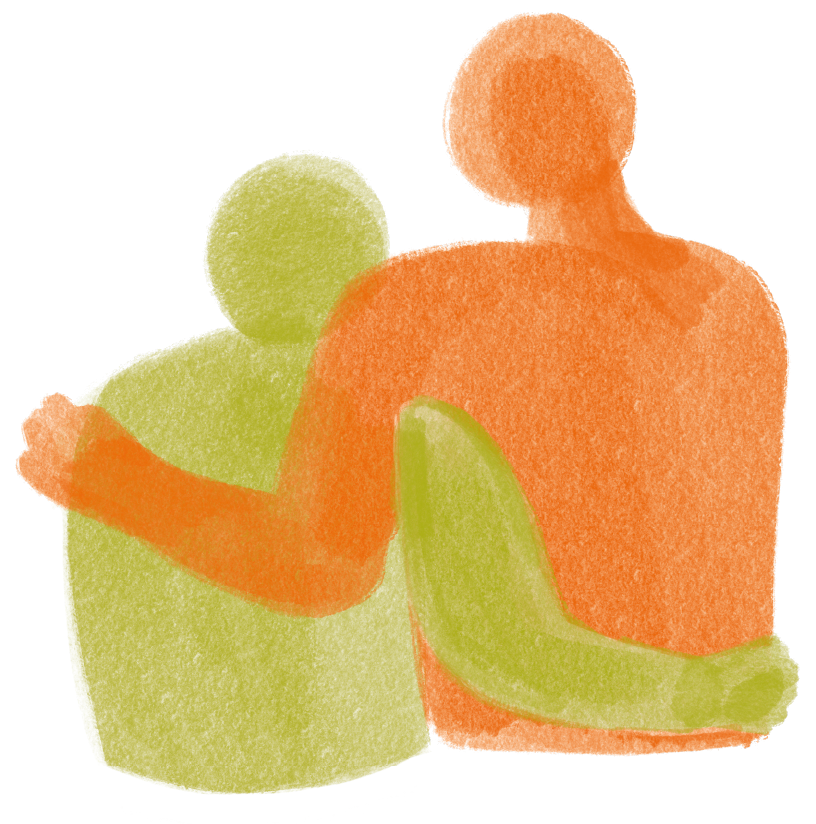Support for carers
Caring for a friend or family member when they have memory and thinking problems can be challenging. Understanding their experiences can help both the patient and carer. Remember to take care of yourself too.

Many people with a cognitive impairment can continue with their everyday lives.
Maintaining independence as much as possible helps people keep their confidence and dignity. Try doing difficult things together, rather than taking over for someone.
Some people with cognitive impairment may struggle with communication.
Simple things like speaking slowly with simple language and maintaining eye contact can help a lot. And remember to listen to them and their body language as well.
There are support groups available, especially for carers of people with dementia.
You may have different experiences, but sharing with people who might recognise some of your feelings can be a great help, for both support and advice.
Talking to someone, like a counsellor, can let you process thoughts and emotions that you don’t feel comfortable sharing with the people in your life.
It also helps to allow you to focus on you and take a bit of time to reflect on how you are coping and feeling.
Your health is just as important as the person you are caring for but it can be easy to forget this.
Try to find time to do things for yourself or arrange alternative support with friends and family if you need a break. Some organisations can also help organise respite care to give you a longer break.
You may be eligible for some extra financial support from the government if you regularly spend time caring for someone.
Click Carer’s Allowance to find out more from the government website.
Your GP surgery and local council should be able to help you find local sources of support.
As well as medical and social care support, there may be other helpful services in your area, such as befriending services, memory cafés, and social and peer support groups.
National and local charities can provide advice and signpost you to other organisations that can help.
Please see our Community Support page for more info on local organisations..
Equipment to help with memory
There are a range of memory aids to help people remember important things.
Automatic pill dispensers – which can be set in advance –may be more suitable for those with more advanced memory difficulties.
Whiteboards are useful for writing lists and reminders.
Clocks with large faces are easier to read, and can display the date, and even the time of day.
Diaries and calendars are useful for keeping track of appointments and routines.
Equipment such as dosette boxes – boxes with a separate pill compartment for each day of the week – can help with taking medication. Dosette boxes are more suitable for people in the earlier and middle stages of dementia because the person needs to know what day of the week it is.
Equipment to help with household tasks
Specially designed kitchen equipment is available. This aims to make cooking easier and safer for people who have difficulties with movement and co-ordination. This includes:
- a kettle tipper – a frame that allows hot water to be poured safely
- grip extensions for controls on appliances like ovens and taps
- timers set to remind people that they have food in the oven or on the hob
- tray trolleys to transport items
- signs to remind the person where cooking items are located
- non-slip rubber gloves to make washing-up safer.
Other household tasks involve standing up for periods of time. To help make this more comfortable, people with dementia could use perching tools. These are special seats that allow people to sit while performing tasks like ironing and cleaning.
If the person forgets the order of certain tasks, a whiteboard, photographs or notes that show the steps needed for each task can also be useful.
Equipment to help with walking and moving
There are lots of different types of equipment to help people keep mobile and independent. These include:
- bed hand blocks (which people can use to push themselves up in bed).
- walking sticks, walking frames and wheelchairs
- grab rails fitted throughout the home
- ramps for wheelchairs
- a stairlift (if staircases become difficult to use)
- transfer aids to help people move from one place to another (for example, a transfer turntable, where a person sits or stands on a base which slowly turns)
- hoists, pulleys and slings to raise or lower people from or into a bed or chair
- moveable hoists to use throughout the house
- riser-recliner chairs to help a person sit or stand
- height-adjustable beds
Equipment to help with eating and drinking
Dementia may affect a person’s co-ordination or swallowing and, as a result, their ability to eat and drink. The person may benefit from equipment such as:
- cutlery with cushioned handles that are easier to grip
- non-spill cups with large handles
- one-way straws which do not let liquid travel back down
Some people with dementia may have difficulties eating and drinking due to visual problems, such as not ‘seeing’ items on the table because they are a similar colour to the tablecloth.
Use cutlery, crockery and other tableware items in colours that contrast with each other. The colour of the food can also have an effect – for instance light-coloured foods (such as mashed potatoes) on a light-coloured plate may not be very visible. A dark red plate could help in this situation.
Helpful links
If you want more information on local council support, your rights as a carer and more practical tips there is lots of helpful guidance on the Alzheimer’s Society.